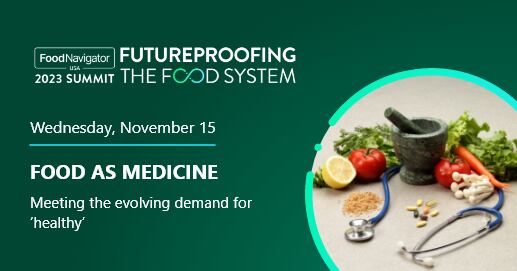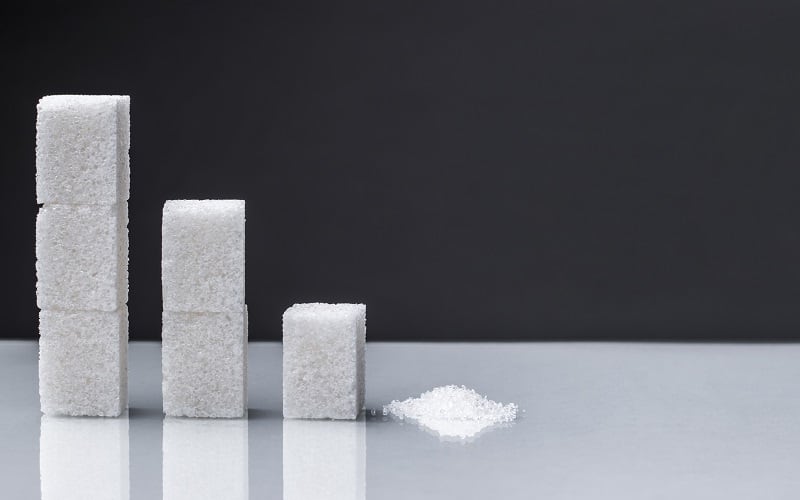"The root cause of obesity, diabetes, and metabolic disease at large always comes back to lifestyle factors, and that includes diet and exercise but also stress and sleep... Are GLP-1 analogs getting at the root cause of obesity? The answer is no. It all comes back to lifestyle ultimately. [Are GLP-1 drugs] getting at a very fundamental mechanism in obesity that root cause is feeding into: yes," Christopher Damman, gastroenterologist, senior medical and scientific advisory board chair for Supergut, and clinical associate professor at the University of Washington, told FoodNavigator-USA.
Is Ozempic a feasible solution to address the US obesity crisis?
The emergence of GLP-1 drugs and their weight-loss potential comes amid the ongoing obesity crisis in the US and its public health implications.
Per a July 2021 National Health Statistics report, the CDC National Center for Health Statistics found 41.9% of adults 20 years and older were obese between 2017 and March 2020, compared to 30.5% for 1999-2000, and severe obesity increased to 9.2%, compared to 4.7% for the same period. Diabetes, hypertension, and dental problems were also prevalent among adults with obesity.
Given the severity of the obesity crisis, some healthcare professionals have started to administer glucagon-like peptide 1 (GLP-1) drugs, such as Ozempic, a type-2 diabetes drug that is injected once a week, which reduces food cravings, leading to weight loss.
“First off, I'll say that incretin-based therapies, which include GLP-1 and other natural hormones, they're a huge breakthrough and are incredibly effective, more so than just about any weight loss therapy that we have. It even measures up against bariatric surgery, and for individuals who have morbid obesity and advanced diabetes, these are game changers. They’re huge," said Damman.
However, GLP-1 drugs have some “gray areas,” especially “when you start using these drugs for folks that are just a bit overweight or want to lose a few pounds,” Damman cautioned.
Consumers must do a “cost-benefit analysis” on their health and the associated side effects, he said. Ozempic’s current reported side effects have included mild GI symptoms, such as abdominal pain, constipation, diarrhea, and nausea, to more rare and severe like bowel obstructions and stomach paralysis. Ultimately, consumers need to consult their doctors on what’s best for their health, he added.
“It's actually targeting not just our brain and how hungry we feel, but it's physically targeting our GI tract, our stomach, our small intestine, our large intestine, and how the stomach empties .... That's one of the roles of the natural hormone in our body. So, it's not surprising that people would have these symptoms and side effects, and in some ways, that's part of why the drugs are so effective.”
GLP-1 drugs receive a market-reality shot
Market analysts are already projecting what it would mean if millions of Americans would take GLP-1 drugs, including declines in indulgent snacks and sugary sodas. However, director of Mintel's food and drink and global consumer division, Jenny Zegler, noted that it might be too soon to make broad declarations on what this will mean for the food and beverage industry.
"The reality of this in the US is that these drugs are incredibly expensive. We do not know their current side effects, let alone their long-term side effects, and the way they are right now, you may have to be on them for life. That to me starts to shrink your potential audience of consumers."
Consumers looking to lose weight have many other avenues before Ozempic would be a consideration, and those who might most benefit from the drugs generally don't have access to them because of the cost, Zegler pointed out.
"If we're honest, a lot of the people who have ... obesity are lower-income Americans, and how are they affording something like this? How are their insurance policies covering it?” she said. “I just am not sure that this is going to be a mass-market game changer in the way that some of the current analysis looks."
What the Ozempic effect will have on consumers, CPG companies
Despite the uncertainty GLP-1 drugs will have on the food and beverage industry, many major CPG companies, such as PepsiCo and Coca-Cola, have fielded questions in recent quarterly earning calls on what the Ozempic effect will mean for their bottom lines. Both companies reaffirmed their current business strategies and noted no current impacts to their business.
Separately, Walmart customers on Ozempic spent less money on food, offsetting increases in spending on lifestyle items and medications to address GLP-1 side effects, John Furner, Walmart US CEO, stated recently.
The attention these drugs have garnered can also be a wake-up call for the food and beverage industry to focus more of its efforts on developing healthier, better-for-you products, Damman said.
“It might very well be that this is an awakening to not just the consumer but to the industry at large that things need to change at the level of food and diet, and we're already seeing folks that are on Ozempic changing their eating habits, and my guess is the food industry is going to react to that. There will be more products that are better for you, not just in food tech, but ultimately in big food,” he said.
Zegler similarly acknowledged that consumers who are hearing about Ozempic might start to look for foods and beverages that provide similar claims and attributes as GLP-1 drugs. Products that promote satiety and portion control are two ways the market can tap into the awareness around Ozempic, she added.
"One of the features of the drugs is that it's supposed to help you feel fuller for longer so for someone who is on these drugs, something with that satiety benefit in a smaller package might work really well, but also could appeal to the mass market consumer who's heard, 'Okay, these are the benefits of the drugs.' I don't necessarily want to be on them, but I do want to eat less but feel fuller for longer," Zegler said.
Ozempic meets the ultra-processed food debate
The food and beverage industry and regulators are engaged in a larger debate on the role and importance of ultra-processed foods in the diet. In many of today’s ultra-processed foods, fiber is removed to boost shelf-life, and sugar is added for taste, Robert Lustig, professor emeritus of pediatrics, division of endocrinology at UCSF, previously explained.
However, the food and beverage industry can start to reformulate these products to add nutrients back into these products, Damman said. CPG companies have several means to make this happen whether through deploying biotech to fortify nutrients into products or taking a stealth-health approach to reducing sugar gradually over time.
“Food tech and big food can make some pretty small shifts that have disproportionately large impacts on health, and one of them can be better balancing carbohydrates, including sugar and digestible carbohydrates, with fiber. So, increasing fiber and decreasing the digestible carbs that would be a really relatively incremental but hugely impactful change that could happen,” Damman said.





